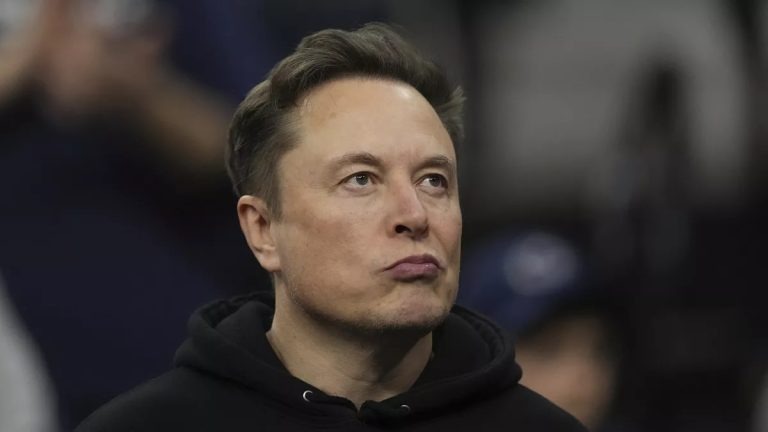Elon Musk wants the government to back off. When asked about EV tax credits last December, he didn’t hesitate: “I think we should get rid of all credits.” That is clear. No sugarcoating. But here is the catch: Tesla, the company he leads, is still pushing hard for government support of electric vehicles.
Just weeks later, President Trump – also no fan of mandates – called for an end to what he labeled the “electric vehicle mandate.” He wants less government control, more consumer choice. Musk and Trump seem aligned on this: No handouts, no rules. Let the market decide. That sounds neat in theory. But when it comes to trucks, freight, and the actual EV rollout, the picture gets messy fast.
Tesla hasn’t exactly stuck to Musk’s free-market script. In Oregon, lawmakers were debating a delay to a state rule that forces truck makers to sell more zero-emission vehicles. Tesla didn’t back the delay. They told the legislature that they would have thousands of EV Semis ready by 2026 and that the mandate should stay.
But here is the problem: Tesla said those same trucks would launch in 2021. Right now, fewer than 200 have been delivered. That is a big miss.
So why push to keep the mandate in place? If Elon Musk truly believes EVs are the future, why does Tesla still lean on government rules to move the needle?
Saying One Thing, Doing Another

In February, Tesla doubled down on the mixed signals. In a letter to shareholders, the company said it expects the Cybertruck to qualify for the Inflation Reduction Act’s $7,500 consumer tax credit. That is the same credit Musk publicly said should be scrapped.
The disconnect here is more than awkward. It raises real questions. Is Tesla just playing both sides – telling investors one thing and the government another? Or does Elon Musk really see no issue with letting his company benefit from policies he claims to oppose?
EVs May Be Inevitable, But They are Not Easy

This is where a balanced EV policy comes in. Not all-or-nothing. Not full regulation, not a total free market. Something in between. For heavy-duty trucks, it’s not easy to go electric overnight. The cost, the infrastructure, the weight – everything is tougher.
Companies need some support to make that leap. But they also need freedom to decide what works best for their business.
A Balanced EV Policy Always Works
Elon Musk might be ideologically against government involvement, but Tesla’s actions suggest the company knows EV adoption doesn’t happen without a little push. And that push, like it or not, often comes from policy.
The bigger issue? Mixed messages muddy the waters. Lawmakers don’t know who or what to trust. Businesses that rely on clear policy are left guessing.
If Musk truly wants to end subsidies and rules, Tesla should walk that talk. No more lobbying to keep mandates. No more highlighting tax perks to boost sales. Just build the best product and let the market work.
But that is not where we are yet. The EV truck market is still in its early innings. Range anxiety, charging times, and vehicle costs are all very real hurdles.
General Disclaimer: The information provided in this blog is for informational purposes only. Info Tease makes no warranties regarding the accuracy or completeness of the content. Readers are advised to verify details independently before making decisions based on the information provided.
Content Disclaimer:This blog is intended to share general knowledge and insights. It is not meant to replace professional advice or guidance. Info Tease does not endorse or guarantee the accuracy of any information presented here.
Advertising Disclaimer:This blog may include affiliate links or advertising content. Info Tease may earn a commission from purchases made through these links, which helps support the platform. However, all opinions expressed are independent and based on our editorial standards.
Affiliate Disclosure:Some links in this blog may direct you to external websites, and Info Tease may receive a commission for purchases made through these links. This does not influence the integrity or neutrality of the content provided.
Third-Party Links Disclaimer: This blog may contain links to third-party websites. Info Tease does not assume responsibility for the accuracy, content, or policies of external websites. Readers are encouraged to review the terms and privacy policies of linked sites.
Legal Disclaimer: Info Tease does not guarantee the safety, reliability, or quality of any products, services, or recommendations mentioned in this blog. Use any information or purchase products at your own discretion and risk.
Stock Image Disclaimer: Images featured in this blog are for illustrative purposes only. They may not reflect actual locations, products, or scenarios discussed in the content. These images are intended solely to enhance the reader’s experience.
Results Disclosure: The experiences or suggestions mentioned in this blog may vary from person to person. Outcomes are not guaranteed and depend on various factors, including individual preferences and circumstances.
Copyright Disclaimer: This content is the property of Info Tease and is intended for personal use only. Redistribution or unauthorized use of this blog’s content is strictly prohibited.







